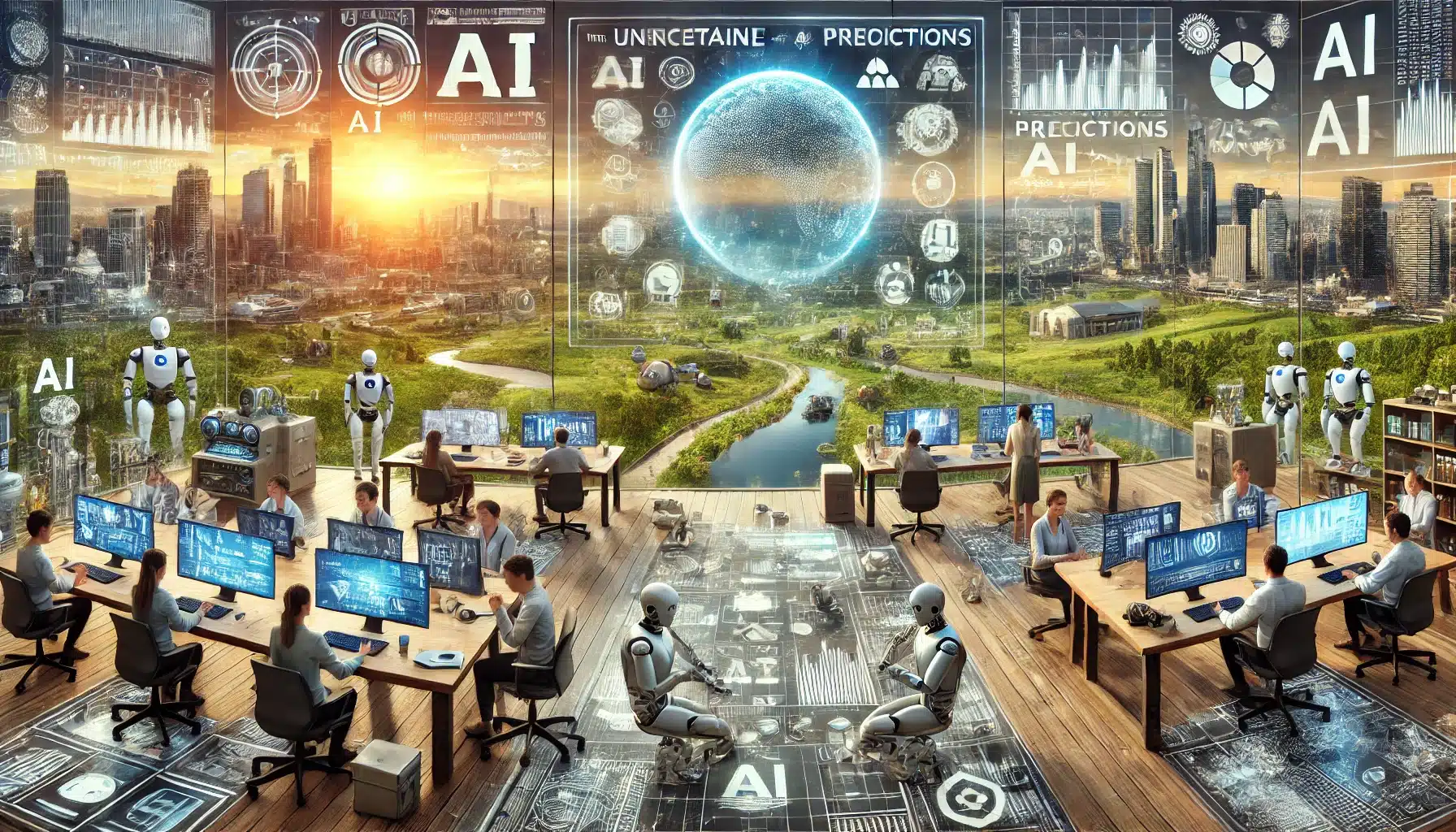What if the AI Revolution Doesn’t Happen?
AI is currently in a hype bubble. Listening to industry leaders like Sam Altman or Jensen Huang, you might think AI is poised to take over the world—or at least your job—very soon. However, with revenues lagging behind costs, some experts, like AI researcher Gary Marcus, are skeptical about the inevitability of an AI revolution.
Marcus, who recently testified before Congress alongside Altman, expresses doubt: “To be honest, I am not confident generative AI as currently envisioned will ever come together.” So, what happens if the AI bubble bursts before these costs are covered? What if the AI revolution doesn’t happen?
Blowing Bubbles
In 2023, OpenAI’s report suggested that 80% of the workforce could be impacted by generative AI, causing widespread concern. Industry leaders have made bold predictions about AI’s impact, from replacing numerous jobs to potentially requiring government support for the displaced workforce.
On the other hand, voices like Gary Marcus argue that the AI industry is built on hype and unfulfilled promises, pointing out that many issues with previous AI models remain unresolved.
The Problem with Predictions
Tech predictions are notoriously difficult. Past claims, like the one in a Guardian article from 2014 about AI-generated news, have not come to pass. Despite previous tech failures, there’s a persistent belief that AI’s revolution is different and imminent.
8 Hurdles AI Companies Face
Let’s examine the challenges AI companies need to overcome to achieve an AI revolution:
- Computing Power: The sheer amount of tasks humans perform requires an unprecedented level of computing power, which we currently lack.
- Energy Crisis: The International Energy Agency predicts data centers alone will consume as much energy as Japan by 2026, not accounting for an AI boom.
- Eye-Watering Expenses: Running AI models is expensive, with venture capital funding currently covering these costs.
- Monetization Challenges: AI tools must eventually become profitable, but it’s unclear how this will happen.
- Hallucinations: AI models occasionally produce incorrect outputs, a fundamental issue with their statistical nature.
- Data Shortage: AI companies are running out of high-quality, publicly available data to train their models.
- Legal Battles: Lawsuits regarding data privacy and copyright are increasing, threatening the viability of current AI models.
- Human Element: Human behavior is unpredictable, complicating the adoption of new technologies.
The Human Element
Unpredictable human behavior poses a significant challenge. Historical examples, like the failure of self-checkout systems and the rollback of robots in factories, show that human factors often outweigh technological advancements.
What Happens if the Revolution Doesn’t Happen?
If the AI industry cannot overcome these challenges and become profitable, the current hype bubble might burst. This could lead to an “AI winter,” where investment dries up and AI becomes the domain of only the largest tech companies.





